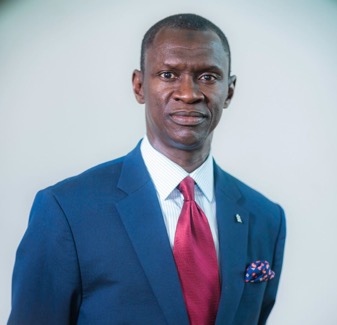
“Accountability is the glue that ties commitment to results.”
Bob Proctor
This simple yet profound observation encapsulates a truth that societies, institutions, and individuals ignore at their peril. It is not enough to commit. It is not enough to campaign. It is not enough to make public declarations of noble intent. One must deliver. And where one does not, one must answer.
Yet, disturbingly, in many communities, including some once-respected institutions, those who call for accountability are vilified. Instead of engaging the substance of the questions raised, critics are targeted, their motives questioned, and their character maligned. The focus is shifted from the message to the messenger.
This is not new. But it is deeply corrosive.
“In a democracy, the highest office is not the presidency, it is the office of citizens.”
Louis D. Brandeis, U.S. Supreme Court Justice.
“In an Education setting, Governors must ask the tough questions i.e. Is the school improving? Are the children safe? Are we spending public money wisely? And if they cannot answer these, they are not governing, they are merely present.”
Baroness Estelle Morris
To question leadership is not treason. It is not disloyalty. It is citizenship. It is stewardship. It is an act of service. When a parent demands better safeguarding for their child, when a teacher asks for transparent spending of funds, when a board member raises ethical red flags, they are not attacking the institution. They are defending its integrity.
“To oppose corruption in institutions is the highest obligation of patriotism.”
- Edward Griffin
Leaders who understand accountability do not fear scrutiny, they welcome it. They understand that to be entrusted with a position of responsibility is to be placed under the lens of public trust. In the words of the late Kofi Annan, former UN Secretary-General
“There is no development without security and no security without development. And there is no lasting success in either without respect for human rights and accountability.”
Accountability is not about witch hunts. It is about creating systems where duty is traceable, performance is measurable, and leadership is answerable. It is about ensuring that power is not cloaked in privilege but grounded in service.
And for those who attack others for raising valid concerns, who politicise, personalise, and trivialise issues, they reveal not strength, but insecurity. They demonstrate that their commitment was never to results, but to control.
“If you are pained by external things, it is not they that disturb you, but your own judgment of them.”
Marcus Aurelius
True leadership is built on the discipline of introspection, not the impulse to retaliate.
Those in power must understand this, being held accountable is not an insult, it is an invitation to lead better. It is the fire through which reputations are tested and refined.
And those who speak out, parents, teachers, citizens, students, must never be intimidated into silence. As John Stuart Mill once warned:
“The worth of a state in the long run is the worth of the individuals composing it.”
If individuals are silenced, the institution suffers. If citizens are muted, the republic decays.
We must then ask ourselves, in our workplaces, schools, and public life, do we want institutions that perform, or institutions that pretend? Do we want leadership that listens, or leadership that lashes out?
In this moment of global accountability reckoning, from corporate boardrooms to education systems, from governments to NGOs, the choice is before us all. Those who resist accountability must be reminded that silence is not consent, and scrutiny is not sabotage.
The institutions that thrive are those that have the courage to listen, reflect, and correct.
“Sunlight is the best disinfectant.”
Justice Louis Brandeis
Let there be sunlight. Let there be truth. Let there be accountability, not as an attack, but as an affirmation.
And let us remember that the glue that binds commitment to results is not ego, not power, not public relations, but accountability. Without it, everything falls apart.
Omar F. M’Bai
Read Other Articles In Opinion



